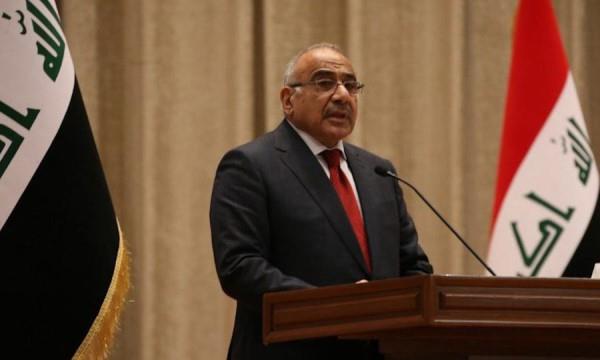
Iraq weighs easing path to citizenship
The most controversial part of the amendment is a clause that would allow foreigners who reside in Iraq for one year to apply for Iraqi nationality. It also gives non-Iraqis who conceive children in Iraq the right to apply for an Iraqi passport, which can automatically be passed on to their children and grandchildren.
According to an earlier version of the law, passed in 2006, only those who complete a ten-year residency are eligible to apply for an Iraqi passport, and even then, it was not guaranteed. Obtaining an Iraqi passport was a complicated task that had to pass through a strict set of measures, including proof of financial, mental, and professional capabilities. That clause has been strictly observed since the first version of the law was passed by the country's founding monarch, King Faisal I, in 1924.Legal loopholes Supporters of the new law claim that it aims at bringing justice to 500,000 Iraqi Kurds who in 1980 were stripped of their nationality by Saddam Hussein. Saddam famously uprooted them from their homes, especially in Mosul, replacing them with Iraqi Arabs.
Opponents argue that loopholes in the new legislation allow any person—not just those wronged by Saddam—to apply for Iraqi nationality, which they claim will make the country a hub for outlaws and criminals. The new law does not require applicants to hold a clean judicial record in their countries of birth or of previous residency.It also says nothing on how they will be taxed once they achieve Iraqi citizenship, nor is there anything in the new text implying that their political rights will be any different from other Iraqis, putting newcomers on equal footing with historic residents of Iraq. They can vote and run for public office, except for the presidency, which requires a person to be the son of both an Iraqi father and mother. One generation down the road, however, newcomers' descendants would be eligible to run for president.
The new law does not contain a quota for new passport holders, prompting prominent analyst Maan Jabouri to tweet: 'One million people can become Iraqis every year. In twenty years, Iraqis will become a minority in their own country.'
While it is unclear how many people would take advantage of such an offer given the grim conditions in the country, the legislation has provoked outcry over a potential new demographic shift.
Shiites to benefit Most critically, the law entitles Shiite pilgrims who visit shrines annually and stay for an extended period to apply for Iraqi nationality. Currently, Shiites make up anywhere between 65-70% of the Iraqi population, or approximately 15 million people. They hold a clear majority over Muslim Sunnis, who ruled the country from the Ottoman times until the 2003 US occupation.Shiites now control all important levels of government, including the premiership and ministry of interior, which would be tasked with implementing the new law, once it is passed. They are in no need of a demographic boost but may be fearful that the tables could turn if their co-religionists are toppled from power, whether by coup — common in modern Iraqi history — or foreign intervention. Empowering the community with a new group of voters from Iran, Lebanon, Bahrain, or elsewhere in the region would be a logical idea for the long term. In addition to pilgrims, large numbers of Shiites regularly visit the country or reside there as members of the militias set up by the government to combat the Islamic State (ISIS) in Mosul and Tikrit.
Former Interior Minister Mohammad al-Ghabban pushed hard for the legislation, which was penned under former Prime Minister Haidar Abadi but only reached parliament under his successor, Adel Abdul Mehdi. Ghabban and the two premiers are Shiites. The post of interior minister, currently vacant and being handled by Abdul Mehdi, has since 2003 been occupied by the Badr Organization, an Iran-backed and funded political party with a ruthless military wing. It was created by Tehran to fight Saddam's army during the Iran-Iraq War of 1980-1988.Iraqi analyst Wissal al-Duleimi, the scion of a powerful Sunni Muslim Arab tribe, described the legislators who penned the law as 'agents working to destroy the Iraqi nation.'
Erdogan watching In theory, other communities are entitled to benefit from the new law, if it passes in final form, provided that they are given the chance by the interior minister. Iraqi Sunnis could boost their numbers, initially through the large number of Palestinians who have been residing in Iraq since 1948. Arab countries have long refused to naturalize them, so as not to risk their 'right of return' to Palestine. Under the new law, Palestinians (mostly Sunni Muslims) would be able to establish a permanent home for themselves in Iraq. They currently number 10-13,000, down from their all-time high of 34,000 under Saddam Hussein.Watching closely is Turkish President Recep Tayyip Erdogan, who has been toying with a similar experiment in his country, that of granting nationality to thousands of Syrian refugees who are loyal to him personally, and who might vote for him in upcoming Turkish elections. In Turkey, however, up until now only highly qualified people are given passports—doctors, engineers, and skilled craftsmen. Erdogan will undoubtedly try to mold the new law to his favor, using it to increase the number of Turkmens in the country, currently standing at a minimal three percent.

Legal Disclaimer:
MENAFN provides the
information “as is” without warranty of any kind. We do not accept
any responsibility or liability for the accuracy, content, images,
videos, licenses, completeness, legality, or reliability of the information
contained in this article. If you have any complaints or copyright
issues related to this article, kindly contact the provider above.


















Comments
No comment